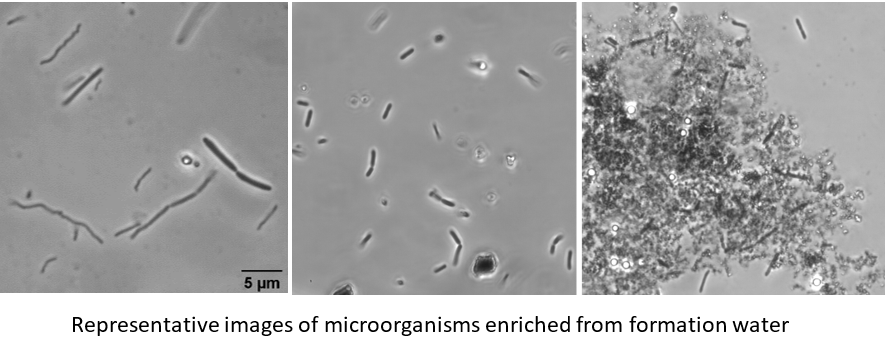Hydrogen is an important energy source for variety of microorganisms on this planet. In oxygen-free, subsurface environments with limited electron donors, hydrogen plays a central role in energy metabolisms of anaerobic microorganisms. Sulfate-reducing prokaryotes, methanogens, acetogens are the main groups of subsurface microorganisms that use H2 for their metabolism. These microbial metabolic processes could pose undesired effects for H2 storage, particularly consumption of stored H2 gas, H2S contamination or corrosion of metal infrastructure. Therefore, as part of the Work Package 3 “Microbiology”, formation water samples from different storage sites with diverse physico-chemical properties have been microbiologically characterized.
It is essential that sampling and sample processing must be done with special care to avoid disturbance of microorganisms potentially present in the formation water as well as any contamination. The collected samples must be prepared in the laboratory as soon as possible and stored under anaerobic conditions until then. Cultivation and molecular biological identification techniques are used to detect both the composition of microbial communities and the viability of specific microbial groups in formation water samples. By means of molecular biological methods, the main groups of H2-consuming microorganisms in formation water samples were determined. It was found that the proportion of microbial groups in individual samples varied widely. Different microorganisms, including H2-oxidizing groups have also been successfully enriched in their respective specific growth media. The results obtained so far indicate that a variety of microorganisms are naturally present in formation water of porous media.


